Mozambique: Candidates from civil society for “Inclusive Dialogue” to apply by 30 June - AIM | ...
Everything to go for in Mozambique peace negotiations
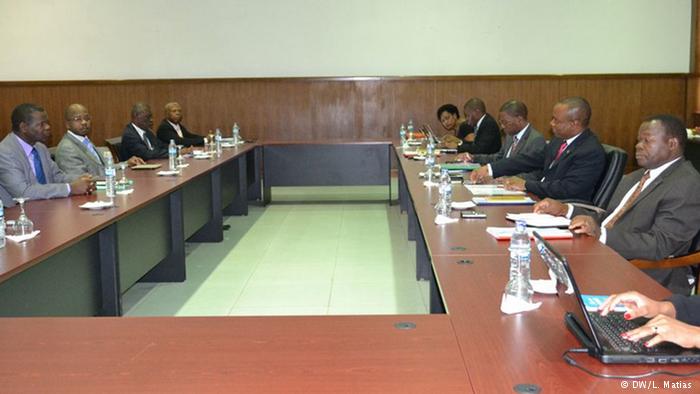
DW (File photo) / The Renamo and Frelimo dialogue in 2014
As Joint Commission talks kick off again in Maputo today, there may be progress, but in the context of attacks and mutual accusations, a definitive ceasefire and compromise are still distant prospects, says analyst Egídio Vaz says.
Before breaking in August, international mediators left some requests, including an end to hostilities, the presence of international observers at flashpoints and the creation of a demilitarised corridor so they can meet Renamo leader Afonso Dhlakama.
During the pause, a sub-commission continued to discuss the points raised by Renamo, but attacks have continued and accusations exchanged between the Frelimo government and the country’s largest opposition party.
DW Africa spoke with Mozambican historian and analyst Egidio Vaz on the expectations surrounding this new round of negotiations.

DW Africa: Is news expected from this new phase of work with the international mediators?
Egidio Vaz (EV): I do not believe there will be news as soon as work resumes. Any agreement that does not provide specific dates and does not include demilitarisation will not be a ceasefire agreement, much less a peace agreement. I would call it a truce.
In 1992, the Comprehensive Peace Agreement provided for the demilitarisation of Renamo, but it did not happen. Neither did it happen in 2013. Although I am a great enthusiast of an immediate ceasefire, whatever the result is, even if positive, it will be no more than a truce. On the other hand, according to the organisation of the agenda items, peace will come after the acceptance of a set of conditions, including the integration of Renamo officials in the Defence and Security Forces. This will be a long process. The most important issue, from the legal and constitutional point of view, is the reform of the administration and a whole range of legislative and constitutional reforms that have to be made. This cannot be done by the end of the year either.
Only goodwill between the parties will be able to save Mozambique from this war: the predisposition to a cease-fire and an arrangement to continue the negotiations in a climate of peace. I have been an optimist. At this point, I am pessimistic about this round.
DW Africa: Specifically, what do you think will happen in this new round?
EV: I think there will be some progress. The mediators will probably meet with Renamo leader Afonso Dhlakama with the opening of a security cordon. There may be a withdrawal of the parties in relation to the positioning of government forces and an agreement on the beginning of a cease-fire to allow the continuation of negotiations.
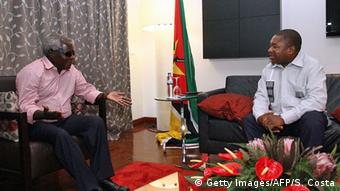
DW Africa: And is the long-awaited meeting between President Filipe Nyusi and Afonso Dhlakama any closer to happening?
EV: I do not know how long the mediators expect to stay this time, but the big news, if it happens, will be the mediators finally meeting the Renamo leader. A meeting between Afonso Dhlakama and the president could happen by the end of the year, perhaps November or December. Just not to be totally pessimistic. But I do not believe it; there are no conditions for that to happen.
Judging by recent statements, the environment, especially on the Frelimo side, is a full-scale revolt and the digging-in of heels. The head of ACLIM (Association of Combatants of the Mozambique Liberation Struggle), one of Frelimo’s governing bodies, which brings together almost all the veterans of the struggle for national liberation, has asked the president for weapons to fight and settle Afonso Dhlakama and Renamo’s hash. I do not believe these statements go unnoticed.
Also, the president is currently [at the time of the interview, published on September 9] on a tour of the provinces and, soon after, is going to New York. His agenda is organised well in advance. No such meeting has been prepared. And during the interregnum in the negotiations, little progress, if any, has been made.
DW Africa: How can Mozambique get out of this impasse?
EV: With compromise. I hope that sooner or later we will live in peace again. But it will also depend on new factors arising on the ground. Both parties are stepping up military action to show the other party their strength and make it yield. These are the same games, the same tools. Eventually there will be new factors. But for now, all that is far away. For example, in 2017, there will be local elections and the two parties are both interested in running and will want to be well-prepared. This could be a factor in a truce next year.
Both sides are stubborn. They do not want to recognise that the war will not bring them to power. There is a great deal of stubbornness on Renamo’s part. You cannot go straight from Gorongosa to the presidency; it will not happen. Power will have to be won at the polls.
On Frelimo and the government’s side, the problem is the same. It must be recognised that the process has been poorly managed for 21 years and now there is an opportunity to “come clean” on everything that has happened. It will take courage, and Nyusi is facing resistance internally.
DW Africa: Other political forces, such as the MDM, and civil society organisations, are asking to participate in the peace process. Do you think that these elements could be included in the negotiations?
EV: I am part of the civil society panel for monitoring the political dialogue. And I can say with certainty that it is Renamo who is hindering this. This war is not for the benefit of the people. It is a war that only results from imbalances in the sharing of power and resource management. With this at stake, Renamo does not want anyone else at the negotiating table. Neither the MDM nor extra-parliamentary political parties are welcome, at least not by Renamo.


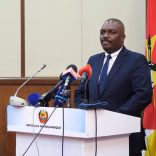
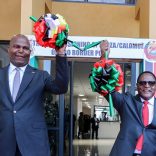


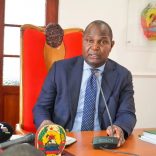
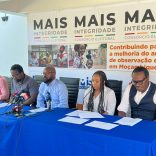




Leave a Reply
Be the First to Comment!
You must be logged in to post a comment.
You must be logged in to post a comment.